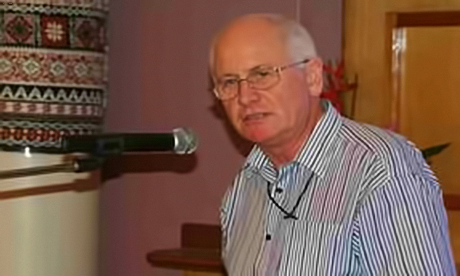Armistice Day 2013 was particularly sobering. The traditional memorials were kept, all with solemnity due in honouring memory of the dead, the witness of veterans and laments for current conflicts.
Sadly, however, evidence would suggest that war will remain a means for political ambition and solution for impasse. Hope for better may be forlorn. Perhaps the will to struggle for personal advantage, to win and impose order is too strong in the human DNA.
Is universal peace merely an ideal hope? Is it merely an intuitive and intellectual landscape of those who inhabit their vision with commitment, searching beyond mundane struggles, for ascendancy of love over self-will and competition for earth’s produce?
Armistice Day became particularly sobering as news agencies reported the calamitous destruction in The Philippines. Typhoon Haiyan wreaked terrifying violence. What were we witnessing? A bad storm? A record event on the scale of dire metrological events?
Or was it more, much more? While one cannot attribute reason to the earth, it is becoming more likely we have become mere witnesses to the planet’s response to humankind’s profligate, careless use of its resources? It may be too strong to argue the planet and humanity are at war. It is not too strong to argue we are not at peace.
Universal peace between people and nations may be a forlorn hope. However, humanity has little choice but to seek peace with the planet that is our home. The only refuge is within. Simply, there is no place of retreat, no place of refuge, nowhere to run.
Armistice Day will always serve to remind us of the cost of politics that place ideologies above the value of all human life. It is a stark reminder of our ability to kill one another for the likes of power, profit and ego.
It is time for a body such as the United Nations to promote a universal armistice for the planet. To gather up the ideals of its own Charter, Human Rights, Millennium Goals and the like for the sole purpose of seeking common cause for a reasonable quality of human life on this planet.
However, how deep is the competitive tribal nature of we humans? Can we overcome the need to devise treaties and moratoriums as expediencies, the desire to impose political will, acquire resources to the relative advantage of a few, and ignore the damage being left to future generations for immediate gain and comfort?
Armistice Day reminds us of the cost and worth of sacrifice. An outcome of such sacrifice is freedoms we might not have had. Will our descendants have a world we would be prepared or even happy to live within? I fear not, yet hope so.
John Fairbrother is the Director of Vaughan Park Anglican Retreat Centre in the Auckland Diocese.
